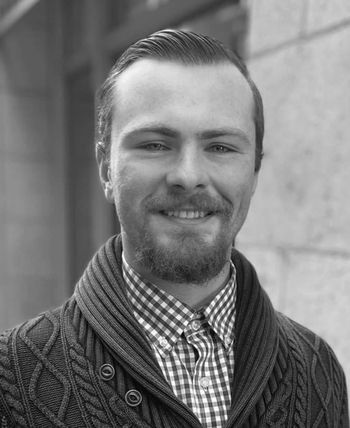Harvard Republican says 'it's never been a better time' to be conservative on campus
On Saturday, the Harvard Salient hosted the Conservative and Republican Student Conference at the Charles Hotel in Cambridge, Massachusetts.
The event was also jointly hosted by JCN Freedom Fighters and Kenneth C. Griffin, the founder and CEO of Citadel.
Conservative students at Harvard University are feeling more optimistic about their campus climate after a recent conference was held to discuss the future of the conservative movement.
On Saturday, the Harvard Salient hosted the Conservative and Republican Student Conference at the Charles Hotel in Cambridge, Massachusetts.
[RELATED: Harvard Divinity School course teaches students about ‘Queering the World’]
“It has never been a better time to be a Republican at Harvard,” said senior Michael Oved, president emeritus of the Harvard Republican Club.
“I’m really excited for today’s event,” Salient Editor-in-Chief Caleb Chung sated. “I think for a long time, conservatives have felt uncomfortable on campus to get together and discuss their views, or to think about conservative ideas and policies,” he continued.
The event was also jointly hosted by JCN Freedom Fighters and Kenneth C. Griffin, the founder and CEO of Citadel.
“Today’s academic consensus leaves little room for conservative ideas,” the Salient wrote in an event description. “Having left the right behind, academia finds itself all too often consumed by intellectual fads and untethered from the needs of our public discourse. The Conservative and Republican Conference was created to address this problem.”
The conference was filled with policy experts for each featured panel.
Panel 1 was a foreign policy debate consisting of Carla Sands, the former Ambassador to Denmark, Greenland and the Faroe Islands under President Donald Trump, as well as Dr. Sumantra Maitra, the director of research and outreach at the American Ideas Institute, Dr. Gabe Scheinmann, the executive director of the Alexander Hamilton Society, and William Ruger, president of the American Institute for Economic Research.
This panel covered a wide variety of foreign policy topics, from the war in the Middle East, to the war in Ukraine, and featured what the panelists thought about the concept of foreign aid and overseas entanglements.
Panel 2 was a discussion on “Immigration, the Border and the American Nation”, featuring Jeremy Carl, a senior fellow at the Claremont Institute, Garett Jones, a professor of economics at George Mason University, Amy Wax, a professor at the University of Pennsylvania Law School, and Simon Hankinson, a senior research fellow at the Heritage Foundation.
Panelists took questions from the audience and shared their opinions on a number of issues, including how the new Trump administration is handling immigration, as well as the deportations of illegal aliens. Questions from the audience were wide-ranging, covering subjects like the H-1B visa program, what it truly means to be an American and how to manage a merit-based immigration system.

